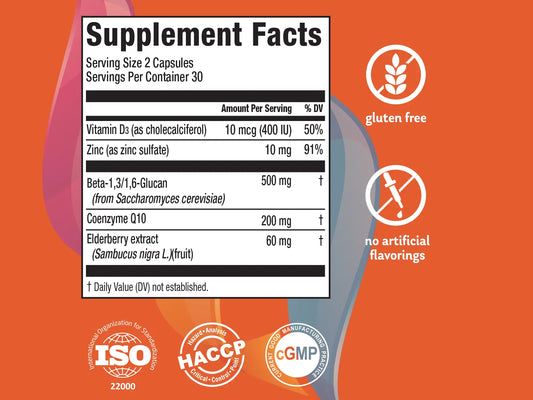Vitamin D is an essential vitamin for healthy bones, muscles and teeth1.* Our body synthesizes vitamin D from cholesterol in the skin when exposed to direct sunlight; during winter months, most people experience a deficiency of vitamin D.
The role of vitamin D in maintaining normal immune function by supporting both innate and acquired immune response is well-studied1-5.* Since the discovery of the Vitamin D receptor and key enzymes involved in Vitamin D metabolism (expressed by immune system cells), its role in the regulation of immune system cells’ behaviour and interactions has received increasing attention6,7.*
- EFSA Panel on Dietetic Products N and A (NDA). EFSA J. 2013;11(7):1-11. doi:10.2903/j.efsa.2010.1468
- He C-SS, Handzlik M, Fraser WD, et al. Exerc Immunol Rev. 2013;19(0):86-101.
- Wang T-T, Nestel FP, Bourdeau V, et al. J Immunol. 2004;173(5):2909-2912.
- He C-S, Fraser WD, Tang J, et al. J Sports Sci. 2016;34(1):67-74. doi:10.1080/02640414.2015.1033642
- Aranow C. Vol 59.; 2011. doi:10.2310/JIM.0b013e31821b8755
- Prietl B, Treiber G, Pieber TR, Amrein K. Nutrients. 2013;5(7):2502-2521. doi:10.3390/nu5072502
- Kamen DL, Tangpricha V. J Mol Med (Berl). 2010;88(5):441-450. doi:10.1007/s00109-010-0590-9




